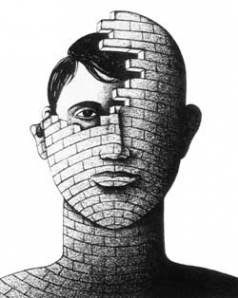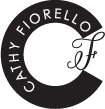The Evangelical Stereotype
30 Dec
Back to Blog List

It all started at a week-long, “non-Christian” writing workshop. By that I mean it wasn’t advertised as a “Christian” writing conference which is what I had always attended before. I’d been searching for a conference closer to home, and this is what turned up. So I went and was surrounded by 15 of the smartest people I’d met in about 15 years. The leader was a lovely man, sincere but profane, with the obvious quirk of hating what he called Evangelical Christians. He took every opportunity to say so, as did many of the others. At first I was a little put off, especially when, at a particularly intense moment, someone shouted “Kill the Evangelicals!” But after a while I was glad to get a sense of how Evangelical Christians were perceived by this segment of the non-Christian intelligentsia. In their eyes we were pompous, preachy, intolerant, hateful, ignorant and of course – Republican.
I guess I set myself up early on by saying that I might be writing for the Christian market. The leader informed me that I would need to completely revamp my novel in order to fit the very strict formula required by the “ever-growing” Christian market. The “ever-growing” comment made me aware of another general perception these writers had about Evangelical Christians: we were insidiously taking over the whole country while the intelligent liberals were being marginalized and edged out by a monolithic Christian conspiracy. It was laughable to me that this perception is the exact opposite of what many Christians think – that we are the suffering minority being pushed out of the schools, media, legal system and government.
What is it in the human heart that relishes seeing ourselves as a marginalized people group? I have yet to figure that out.
During my time at this conference, I met a shy, quiet lawyer. I know it sounds like an oxymoron – a lawyer who is quiet and shy (now I’m showing my preconceptions). Of course as a writer, she is the victim of yet another stereotype. Apparently writers are self-critical, brooding introverts who are generally alcoholic.
Inevitably, during the week people started making lawyer jokes - the kind that identify members of her profession as crooks, snakes, and ambulence-chasing bloodsuckers. At one point I caught her eye and realized that she probably was feeling as ridiculed and typecast as I was. When she told me she takes that kind of ribbing in stride, I thought, well then, so can I.
Interestingly, being the “designated Christian” at this conference meant that one by one, over half of the participants came to me to discuss their spiritual/religious experiences – as if I were the resident expert. One was raised Baptist, one was in recovery, one was married to a Christian, one had gone to parochial school and was still bitter about it, one had converted to Catholicism and become religious, one had been hurt by Catholicism, and so on. Maybe these people came to me because I am also a therapist, but it gave me insight into what people carry in their histories that influences how they view Christians.
The term “Evangelical” has become feverishly policized of late, reflecting not a spiritual belief but a voting demographic. Somehow it has become synonmous with White Conservatives Who Voted For Trump. According to an NPR article written last year (Are You An Evangelical?), the term is decidedly “squishy” meaning that, depending on the survey, it represents more than a third or less than a tenth of Americans.
The politicization of the word reminds me of its decidedly pejorative meaning for my Italian immigrant parents sixty years ago. Their mostly Roman Catholic relatives referred to them as evangelisti – religious people who were trying to spread a non-Catholic version of Christianity and were obviously going to hell.
What would it be like if we let go of our preconceptions and typecasting? If instead of feeling oppressed and misunderstood, we learned how to actually listen to each other?
By the end of that week, I loved those quirky writers, and I think they loved me. And why not? We were all members of the same insane, human family, loving and hating different things but each of us using the enchantment of words to scratch an itch we all understood.
Back to Blog List

The key word in your article is LOVE. God is love, love God. Love one another.
You're absolutely right, Maria!
Cathy. It strikes me that by not allowing yourself to become offended, which is what a "religious" spirit does, you were able to show love and honor to yourself and those around you. That is exactly what Jesus does and also what he loves! 😊
Thanks for your comment Beth. Hmm, not allowing ourselves to become offended - wonder if that would work in our family relationships?